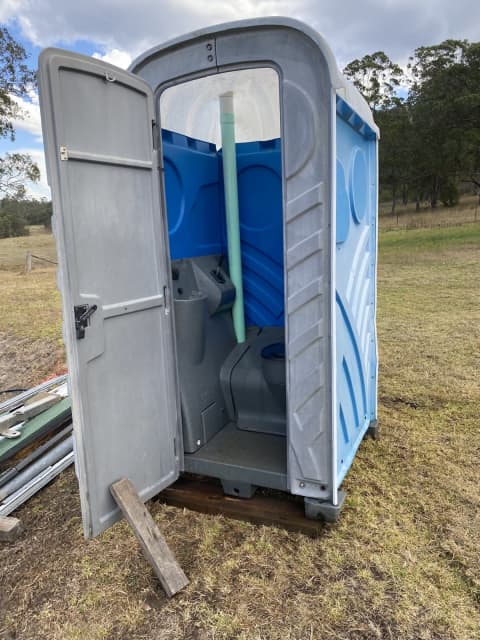Still early (4:30 AM ) 9th in the DRC . Day hasn't started .maybe october?
nah surely before drc battery council on the 20th, so dare I say 11 days?
Last edited:
Still early (4:30 AM ) 9th in the DRC . Day hasn't started .maybe october?
nah surely before drc battery council on the 20th, so dare I say 11 days?
Did you take away any positives from the AB performance ?That should take Glencore 3 seconds of DD
0 ground zero
Do we know where Nigel is?Unless the countdowners have other info I don't, although what we hope might be issued or signed already or today, I am not expecting to hear about it yet. When NF returns to the DRC, that's what he's returning for. And I think it will be after that point that we might hear about it.
And that's not today and unlikely tomorrow (our time) either.
Just my thoughts, no real idea of whats happening.
Dave Evans contacted the Advisory Board Members and Ministries as well as media representatives of the DRC- AFRICA Battery Metals event urging them to support AVZ’s position.
Tantalex secures Glencore’s backing for Congo lithium project
The Swiss miner and trader has agreed to finance a third of the capital requirements for the DRC project, if it meets its conditions, Tantalex said in a statement.




I have the vinyl single of ACDC's "Can I Sit Next To You Girl" with Dave singing
*Fyi, In other News, I see where the MoM has been busy doing what MoM does best
Mines: forfeiture of 8 ERG group operating permits
For more than a month, two companies of Eurasian Resources Group-Africa (ERG) based in the DRC have been hit by the forfeiture of mining rights.
These are Boss Mining, based in Kakanda in Haut-Katanga and COMIDE in the province of Lualaba.
The Ministry of Mines criticizes these mining companies for the delay in signing the specifications as required by the Mining Code.
But for the NGO Justicia, the motivations for these measures would be a conflict of interest.
Indeed, the Ministry of Mines has, since July 31, made public 28 orders.
8 of them relate to the forfeiture of the mining rights of two ERG group companies.
First target, Boss Mining.
While this company was already subject to the suspension of production for 3 months, the company has just suffered a new sanction, this time stronger.
The Ministry of Mines deprived him of his rights to four operating permits. These are permits n° 463, 467, 468 and 469.
The second victim company is COMIDE based in Kisankala, near the city of Kolwezi. It too can no longer rely on 4 mining permits.
These are in particular n°2606, 2607, 2608 and 12715.
Thus, these two companies are forced to stop their copper and cobalt mining and production activities.
However, Eurasian Resources Group is one of the important players in the mining sector in the DRC.
From 2019 to 2022, its investment was around US$9 billion.
The group claims to have generated more than US$1.6 billion in taxes, dividends and royalties.
Additionally, it has created around 10,000 jobs in the country.
The group intends to invest an additional USD $2 billion in the country over the next two years.
Justicia Asbl denounces influence peddling
As a result, the decision of the Minister of Mines provoked reactions from both civil society and local communities.
Justicia Asbl, for example, believes that the reasons for this decision would be other than the late signing of the specifications.
For this organization, the taking of these measures for the forfeiture of 8 operating permits of the ERG group would be consecutive to the publication of an article by the newspaper Afrique Intelligence dated July 28, 2023.
This one was titled “The Kazakh ERG miner grapples with the presidential family in the Lualaba”.
Thus, this organization is asking the Minister of Mines to reconsider her decision and to engage in discussions with the companies with a view to finding an acceptable solution.
In the meantime, the ERG group had already reacted to the publication of the Afrique Intelligence newspaper.
In a press release published on its site on August 29, ERG rejects the allegations made by the media.
"The title and images used in this article are highly misleading."
Eurasian Resources Group strongly rejects the idea that the group is at odds with the DRC Presidency, its government, or the extended family of the DRC President.
The article suggests on behalf of ERG that this is the case. What the group disapproves of.
Community concern and worker uncertainty in Kakanda
Meanwhile, at the local level, communities are worried.
For civil society in the city of Kakanda where the Boss Mining company is located, for example, the measures taken at the national level negatively affect local communities.
“This decision blocks the development of our entity,” declares a member of civil society.
And to continue, “Boss Mining is the only operational company in Kakanda.
In addition, we have just signed the specifications with it which provide for the construction of the infrastructure.
These include health centers, schools, etc.
The only infrastructure that exists in Kakanda dates from the colonial era.”
For their part, Boss Mining workers are in limbo.
They fear for their professional future.
“Despite the suspension of production for the last three months, the company still paid our salaries.”
There, we do not know what our fate will be. Will we go on technical leave?
In addition, our colleagues in subcontracting companies are already being sacrificed.
They have not been working since production was suspended.
What will become of them?” asks a young employee, speaking anonymously.
For the moment, the ERG group has not yet communicated on this decision by the Ministry of Mines.
It should be noted that the measure relating to the forfeiture of rights to operating permits also concerns 14 other companies.
Among them are Ruashi Mining with operating permit no. 13083 and Sodimico with permit no. 102.
mediacongo
View attachment 44241
And know how to work them.E
ERG is a huge company and has made a great contribution to the DRC so what is their rationale for voiding their licences. Makes one think the DRC hasn't changed under Felix and as a conseqence is NOT a place to invest apart from CCP controlled companies who know how to deal with children.
It could well be right geo, but, we've learnt not to trust everything we read too...E
ERG is a huge company and has made a great contribution to the DRC so what is their rationale for voiding their licences. Makes one think the DRC hasn't changed under Felix and as a conseqence is NOT a place to invest apart from CCP controlled companies who know how to deal with children.
It’s not the first time there have been issues with irregular “approvals” concerning Tantalex / Eric Allard.There is still the underlying issue regarding the license for the tailings. According to Grahame Johnston any license for tailings and mining that sits on top of another mining tenement can only be issued to the main tenement holder, being AVZ, according to DRC mining law.
The license that was issued to Tantalex is not valid.




Yes that and child labour. Z great at both. We'll I suppose one gets the other but the elites do not give one fuck.True, just give them lollies and make them feel important. You don't need a brain for that.

Well fuck me there you go. the elites don't want a real western company running Manono with all the local employees and the benefits that they will relieve. as they'll have no-one to work their the elites artisanal shit. Just sell this cunt of a thing and get me out of it. The the whole government structure is probably 1 or 2 generations from being viable imo. Jesus it'll take the next set of leaders to give a fuck about the rural citizens before anything changes. Bit like australia really.And the people of Manono starve due to Governments Abandonment
Minining Licence for Dathcom would resolve the imbalance between agriculture and mining (Part of the Dathcom undertaking to provide improved living standards - but it needs the licence first)
Manono: an attic that has become an artisanal quarry
View attachment 44256

Actualité | Manono : un grenier devenu une carrière artisanale | mediacongo.net
Considéré autrefois comme le grenier du Grand Katanga et d’autres coins de la RDC, le territoire de Manono connaît depuis plus d’une année...www.mediacongo.net
Once considered the breadbasket of Greater Katanga and other parts of the DRC, the territory of Manono has been experiencing a crisis in basic food products for more than a year. Increasingly, agricultural production is becoming weak. And food prices on the market are taking the elevator. For example, a bucket of corn is currently trading at four thousand Congolese francs. There are many reasons for this.
Located about 429.9 km from Kalemie, capital of the province of Tanganyika, Manono is an agricultural territory. The latter sector was a main activity and once occupied a large part of the population. It was the engine of the economy of this rural town. In 2010, for example, the agricultural census put the figure at about 83,000 planters. And they had realized more than 210,000 hectares of area.
But unfortunately those days are over. Most farmers have abandoned the field. They have embarked on artisanal mining, says civil society actor Dickson Kabange. This has a negative impact on production in this province.
Consequences for agricultural production
In the market, everything is imported outside the territory, explains Henry Kapongo Shalunda, a resident of Manono. "We don't produce anymore. Everything comes to us from other territories. The oil comes from Kasai, cassava and maize come from Kabongo. Traders travel approximately 202 km to buy maize. They take the Manono-Kakanda road to Kabongo. Others go by train. Apart from this, it will also be necessary to count the toll fees which amount to 40,000 FC. "All of these factors are driving food prices high in the market."
To remedy this situation, some farmers believe that the mining royalty should be used for the construction and rehabilitation of agricultural feeder roads in Manono. This would encourage growers. Because, they say, the territory of Manono is impacted by the mining of companies operating in this part of the country.
La Guardia / MCP magazine, via mediacongo.net
